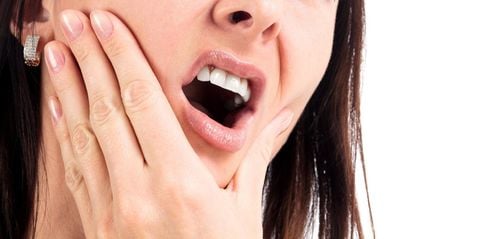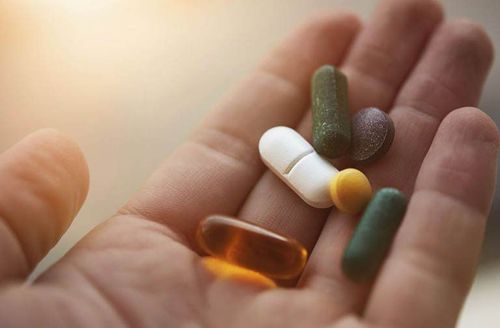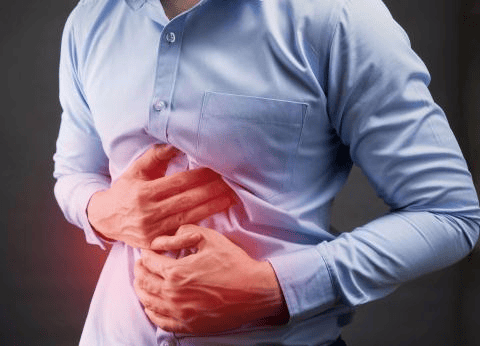This is an automatically translated article.
The article was professionally consulted by Specialist Doctor I Nguyen Trung Hau - Doctor of Odonto-Stomatology - Department of Medical Examination & Internal Medicine - Vinmec Da Nang International General Hospital.Bad breath can cause anxiety and discomfort for patients. However, it is completely possible to cure severe bad breath if you know the exact cause and then have the appropriate treatment. Depending on the cause of bad breath, there are many different ways to get rid of bad breath.
1. The reason why you have bad breath
Food Decomposition of food particles in and around the teeth can cause odors. Eating foods that contain specific essential oils is also a cause of bad breath. Onions and garlic are the most obvious examples, but other vegetables and spices can also cause bad breath. Dental problems Poor oral hygiene, if you don't brush and floss daily, the food particles left in the mouth will create conditions for bacteria to multiply and secrete chemicals such as hydrogen sulfide - a compound with a characteristic rotten egg odor. Having periodontal disease, gingivitis, and tooth decay are all causes of bad breath. Dentures that are not cleaned regularly or properly can harbor a variety of odor-producing bacteria and food particles. Dry mouth Saliva helps clean the mouth, removing particles that can cause bad breath. A dry mouth condition (dry mouth disease) can contribute to bad breath due to reduced saliva production. Dry mouth often occurs spontaneously during sleep, leading to bad breath in the morning. Certain medications can lead to chronic dry mouth. It can also be caused by other diseases of the salivary glands.Trắc nghiệm: Bận rộn có ảnh hưởng đến sức khỏe của bạn không?
Cuộc sống hiện đại khiến chúng ta vì quá bận rộn mà quên chăm sóc sức khỏe cho chính mình. Ai cũng biết rằng lịch trình làm việc cả ngày có thể khiến bạn kiệt sức, nhưng cụ thể bận rộn ảnh hưởng thế nào tới sức khỏe? Hãy cùng làm thử bài trắc nghiệm dưới đây.
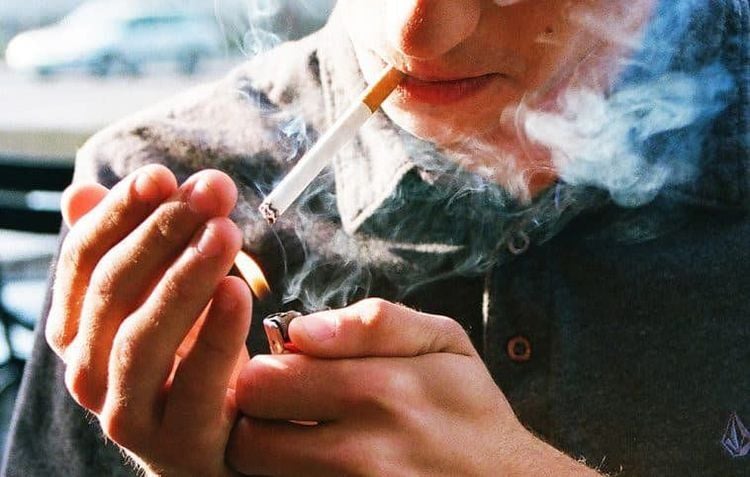
2. How to recognize bad breath
Method 1: The patient sits opposite the examiner, holds his nose and breathes through his mouth for a few minutes. If there is a bad smell, the source is from the mouth. The patient then closes the mouth and exhales through the nose. If the odor is coming from both the mouth and the nose, it may be due to a general illness that causes severe halitosis.Method 2: The patient feels it by placing his hand over his mouth, exhaling and then smelling the smell.
Method 3: The patient or the examiner smells on the floss (dental floss) after brushing.
Method 4: In some modern dental facilities and dental clinics, the concentration of bad breath in the mouth can be measured by Halimeter, Halitest is also applied.
3. Can bad breath be cured?
It is completely possible to cure severe bad breath if you know the exact cause and then have the appropriate treatment.Depending on the cause of bad breath, there will be many ways to cure bad breath as follows:
Treatment of oral causes such as: clean teeth after eating; treatment of caries, gingivitis, pathologies in the oral cavity; keep your mouth moist by drinking water; if the tongue is dirty, scrape the tongue but avoid causing injury to the tongue; If you wear dentures, you need to clean them properly. Treatment of ENT diseases such as rhinosinusitis, pharyngitis, tonsillectomy... is a treatment for bad breath. Treatment of digestive tract diseases such as stomach pain, hepatitis, colitis and other diseases of the digestive tract... Avoid foods that can cause bad breath in the mouth. Eat lots of fruits and vegetables; Limit meat and fat, and avoid strong-smelling cheeses. Avoid drinking too much alcohol, tobacco... Mouthwash should be used in the evening because this is the time when bacteria are active. Going to the dentist regularly every 6 months to scrape tartar and check for dental diseases is a good method for you to cure bad breath completely.
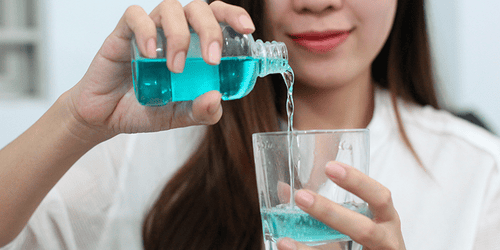
4. Prevention of recurrent bad breath
Prevent recurrent bad breath by:Brush your teeth after eating: You can leave your toothbrush at work to use after eating. It is recommended to brush your teeth at least twice a day, especially after meals. Floss after every meal: Flossing removes food particles between the teeth will help prevent bad breath caused by food effectively. Brush your tongue: Your tongue contains a lot of bacteria and is a favorable environment for bacteria to grow because it contains accumulated food particles, so brush your tongue daily to prevent odors effectively. People with white tongue are experiencing an overgrowth of bacteria, so daily cleaning is needed to prevent severe bad breath. Clean dentures or dental appliances: If you wear braces or dentures, clean them thoroughly at least once a day or as directed by your dentist. Please clean your teeth and these tools before putting them in your mouth. Avoid dry mouth: To keep your mouth from drying out, drink enough water each day. Chew sugar-free gum to stimulate saliva production. For chronic dry mouth, your dentist or doctor may prescribe an artificial saliva preparation or an oral medication that stimulates saliva production. Avoid smoking, limit coffee, soft drinks or alcohol – they are not only bad for your health but also make your breath bad. Adjust your diet: Avoid foods like onions and garlic that can cause bad breath. Eating a lot of sugary foods has also been linked to bad breath.
Please dial HOTLINE for more information or register for an appointment HERE. Download MyVinmec app to make appointments faster and to manage your bookings easily.





